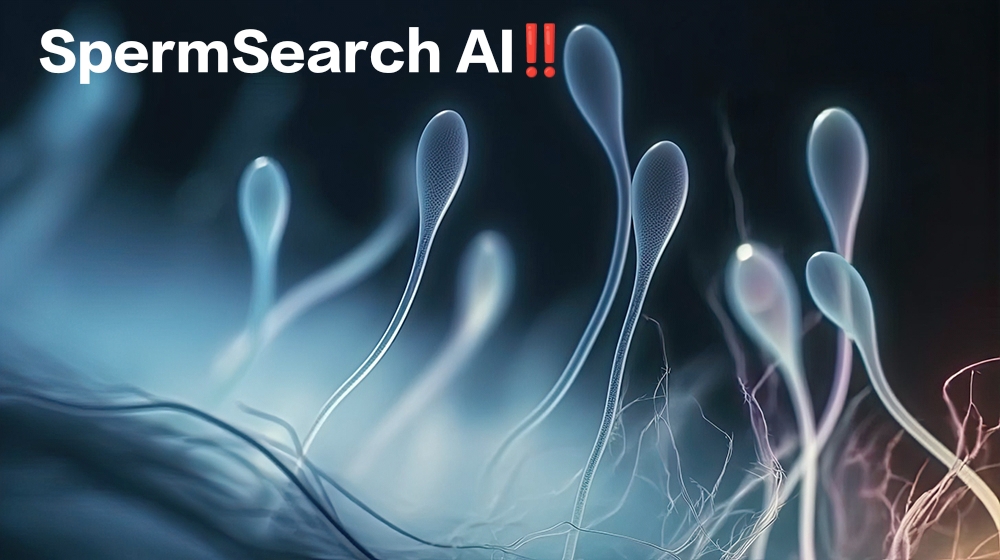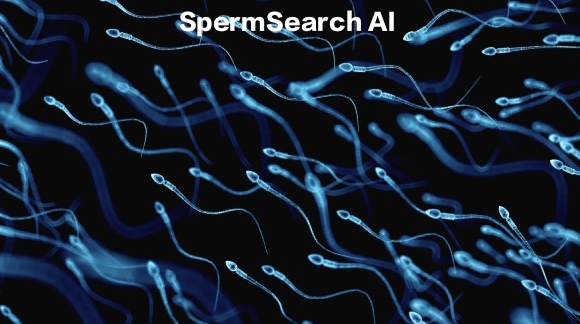AI software called "SpermSearch" significantly expedite the identification of viable sperm in tissue samples from men with non-obstructive azoospermia (NOA). The AI system can perform this task 1,000 times faster than a trained human embryologist.
Male
infertility is a pressing issue, affecting 7% of men worldwide. However, a
groundbreaking solution might be on the horizon, thanks to the power of
artificial intelligence (AI). Dr. Steven Vasilescu and his team from the
University of Technology Sydney have developed an AI software called
"SpermSearch," designed to revolutionize the treatment of male
infertility.
This
innovative system can identify viable sperm in samples taken from severely
infertile men a staggering 1,000 times faster than a highly trained human
embryologist. The target demographic for SpermSearch is men who produce no
sperm in their ejaculate, a condition known as non-obstructive azoospermia
(NOA), affecting 10% of infertile men.
Traditionally,
embryologists manually search for healthy sperm in a small portion of
testicular tissue surgically removed from these patients. This painstaking
process can take multiple staff members six to seven hours and comes with risks
of fatigue and inaccuracy. SpermSearch, on the other hand, can detect healthy
sperm in seconds by analyzing photographs of tissue samples immediately
uploaded to a computer. To achieve this remarkable speed, Dr. Vasilescu and his
team trained the AI by exposing it to thousands of images of sperm in complex
tissue samples.
We're
now on WhatsApp. Click
to join
Also Read:
Zomato Foodie Buddy AI Chatbot: Your Personalized Dining
Assistant Powered by AI
Male
Infertility Treatment, How AI Becomes a Game Changer
The UTS
biomedical engineering team reported that SpermSearch was 1,000 times faster
than an experienced embryologist in a test scenario. However, it's important to
note that SpermSearch is designed to complement, not replace, embryologists,
acting as a valuable assistive tool.
Speed is of
the essence in treating male infertility, as there is a limited window for
fertilizing eggs after egg collection. The accelerated process offered by
SpermSearch is a significant advantage in this context.
Male infertility
has become increasingly prevalent, with reports indicating a 50% decline in
sperm counts over the past four decades. Various factors, from pollution and
smoking to diet, sedentary lifestyles, and stress, contribute to this trend.
Dr. Meurig
Gallagher, an Assistant Professor at the University of Birmingham, is another
academic working on innovative solutions for male infertility. His technique
employs imaging software to monitor sperm tail movement, providing insights
into sperm health. In parallel, Belfast-based fertility firm Examen utilizes a
technique called single-cell gel electrophoresis to identify DNA damage in
individual sperm.
Although
these AI-driven developments are exciting, the medical field progresses
cautiously. SpermSearch, for instance, remains at the proof-of-concept stage,
having undergone a small trial involving only seven patients.
Professor
Sheena Lewis, Chief Executive of Examen, emphasizes that while AI shows
promise, the journey from proof-of-concept to commercial availability can take
between two and five years, and it may remain a specialized tool for a specific
group of men.
Dr. Vasilescu
believes that their treatment represents the "last stop" for many
patients, potentially making the difference between fertilization and the end
of treatment. The UTS team is gearing up for clinical trials, with the ultimate
goal of achieving a live pregnancy.
Artificial
intelligence is poised to transform the landscape of male infertility
treatment, offering newfound hope to countless couples facing this challenge.
We're
now on WhatsApp Channel. Click
to join
Most Read:
How AI win Over three World Champion Drone Racers, AI
piloting system power


